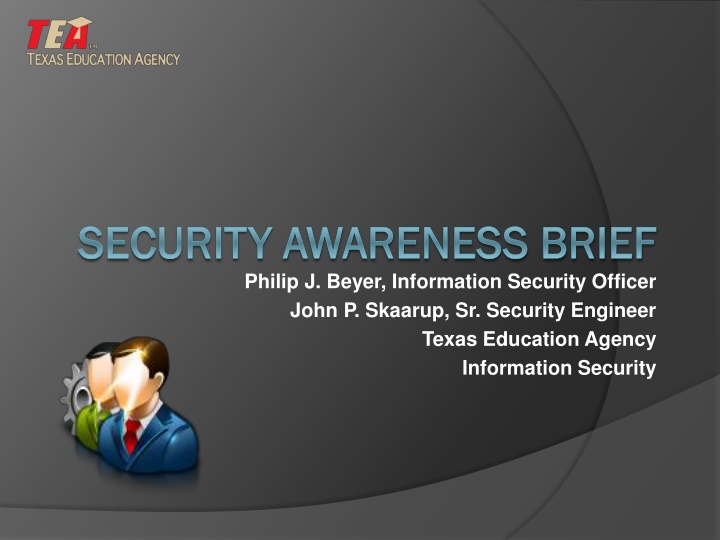
Enhancing Cybersecurity Measures in Educational Institutions
Safeguarding student records and school technology from cyber threats is crucial in educational settings. This article emphasizes the importance of data protection, the need for antivirus software, firewalls, and data backup solutions in schools to ensure secure online operations.
Download Presentation

Please find below an Image/Link to download the presentation.
The content on the website is provided AS IS for your information and personal use only. It may not be sold, licensed, or shared on other websites without obtaining consent from the author. If you encounter any issues during the download, it is possible that the publisher has removed the file from their server.
You are allowed to download the files provided on this website for personal or commercial use, subject to the condition that they are used lawfully. All files are the property of their respective owners.
The content on the website is provided AS IS for your information and personal use only. It may not be sold, licensed, or shared on other websites without obtaining consent from the author.
E N D
Presentation Transcript
SECURITY AWARENESS BRIEF SECURITY AWARENESS BRIEF Philip J. Beyer, Information Security Officer John P. Skaarup, Sr. Security Engineer Texas Education Agency Information Security
The importance of protecting student records Confidentiality of student records is the responsibility of everyone in the Texas Education System, including faculty, staff, and students Students rely on the schools to protect their privacy Federal law (FERPA) requires it
Responsible administrators must guarantee that these systems are as secure as possible so that: Student and staff data remain private School technology property is not damaged from attacks from email viruses, inquisitive student hackers or malicious external infiltration Students, teachers and district staff have access to online information and network services through secure Internet and network connections
Every school should have Anti-virus software Anti-virus software protects computers from viruses that destroy data and require costly repairs to computer systems. For optimal use, anti-virus software should be updated at least weekly and software should be scanning all documents on a computer, as well as all incoming emails, on a daily basis.
Every school should have Firewall Protection A firewall is software or hardware designed to block hackers from accessing your computer network. Firewalls are designed to prevent hackers from getting into programs and files. A firewall is different from anti-virus protection in that it makes a computer network invisible on the Internet and blocks communications from unauthorized sources.
Every school should have Data Backup Backing up system data and storing it offsite is an integral part of any cyber security plan. Regular data backups protect organizations in the event of hardware failure or accidental deletions, and also protect staff against unauthorized or accidental changes made to file contents.
Various rules governing data FERPA Campus OPs TAC 202 SLA MOU Licenses
The entire school community contributes to the district s network security. District and school staff, teachers, students and parents should know how to protect themselves and their personal data from attack.
Additional resources http://www.staysafeonline.org/ http://www.us-cert.gov/home-and-business
In the end Protection of student and PII data is of utmost importance (and a FERPA requirement) Ensure the proper protection framework and awareness is in place before you process that data http://stcl.edu/registrar/2010ferpa.jpg
